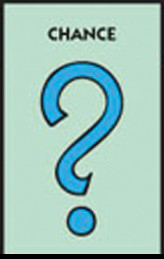Address
39 Fen End Lane.
Spalding, Lincs. PE12 6AD.
 In the first of these two blog posts, I highlighted how good and bad economic events are much more likely than you might expect. And this is partly due to the way the economic world is wired. There is a ‘network effect’ that also applies to many other complicated systems, such as our bodies.
In the first of these two blog posts, I highlighted how good and bad economic events are much more likely than you might expect. And this is partly due to the way the economic world is wired. There is a ‘network effect’ that also applies to many other complicated systems, such as our bodies.
I also described how some students in the States had developed a game that demonstrates this effect called the ‘Bacon Game’. The game is based upon linking actors to Kevin Bacon, either through appearing in the same movie as him or having acted with someone who has….and so on. And what we discover is that the acting universe is far more connected to the star of such movie greats as ‘Tremors’, than we would think if they only knew each other randomly.
But this second blog is about how, even if things did just happen randomly in the same way as tossing a coin or rolling a dice, unlikely events still happen more often than we expect. Or to put it another way, when the world gets as big and complicated as it is, coincidences are very likely even though we might imagine that the chances of them happening are extremely small.
Now I am not attempting to rubbish any beliefs you might have about ideas such as fate, for example. I am merely demonstrating that we ought to consider how likely coincidences are before we assign them any special spiritual or paranormal significance.
And in investing terms, it means that yours truly is especially sceptical when looking at a presentation from an expensive fund manager showing magnificent potential returns for my clients. After checking whether I think the data is real, I then need to consider whether they’ve just been lucky. Maybe they have just been ‘fooled by randomness’ as Nassim Taleb put it in the book of the same name.
One of the best examples used to demonstrate how more likely coincidences are than we expect is this question – What is the chance that two children in the same class at school have the same birthday? Statisticians know this question as the ‘birthday problem’ or ‘birthday paradox’.
And the answer?
Well, assume there are 30 kids in a class and that birthdays are evenly spread over the year. Given there are 365 days in a year, the answer would seem pretty unlikely. But, the mistake we make is that we tend to think in terms of any two children sharing a specific date such as the 12th November, rather than the chance of sharing any date in the year.
The answer is 50% – actually, it’s a little over a half as you only need a class of 23 to get a chance of 50%. Or to put it differently, if we had two classes of children, we would expect one of the classes to have two children sharing a birthday.
There are several ways of calculating this theoretically and if you contact me I can send the most straightforward one to you. But, we can also get the same answer using a mathematical technique of trial and error called a ‘Monte Carlo simulation’.
If you create a column of 23 random dates in an excel spreadsheet and keep hitting the F9 key to recalculate those random dates, you’ll find that half the time two of those 23 dates will match. This is a very simple example of this technique and I use it far more extensively when making financial plans.
Of course, the other option is to ask your own children or remember your own school days. And at my school I was that kid in my maths class that shared their birthday with a girl in the same class. I don’t think my teacher appreciated the statistical likelihood of that outcome – he was just demonstrating data selection techniques and had come up with his own early version of a dating service using holes punched in cards.
Alas, while his experiment was a perfect example of the’ birthday problem’, as an exercise in matchmaking it didn’t work. We’d have been a pretty odd couple. The girl in question was six inches taller than me at the time and went on to become a national karate champion – I was more into art.
I did, however, marry the girl in the next classroom whose birthday is two days after mine. And here we are together over 30 years later – what’s the chance of that happening?
Apparently, a little more that I’d give Sheldon and Amy in the ‘Big Bang Theory’.
Please remember:
- past performance is no guide or guarantee of future returns;
- the value of stock market investments can rise and fall over time, so it is quite possible to get back less than what you put in, depending upon timing